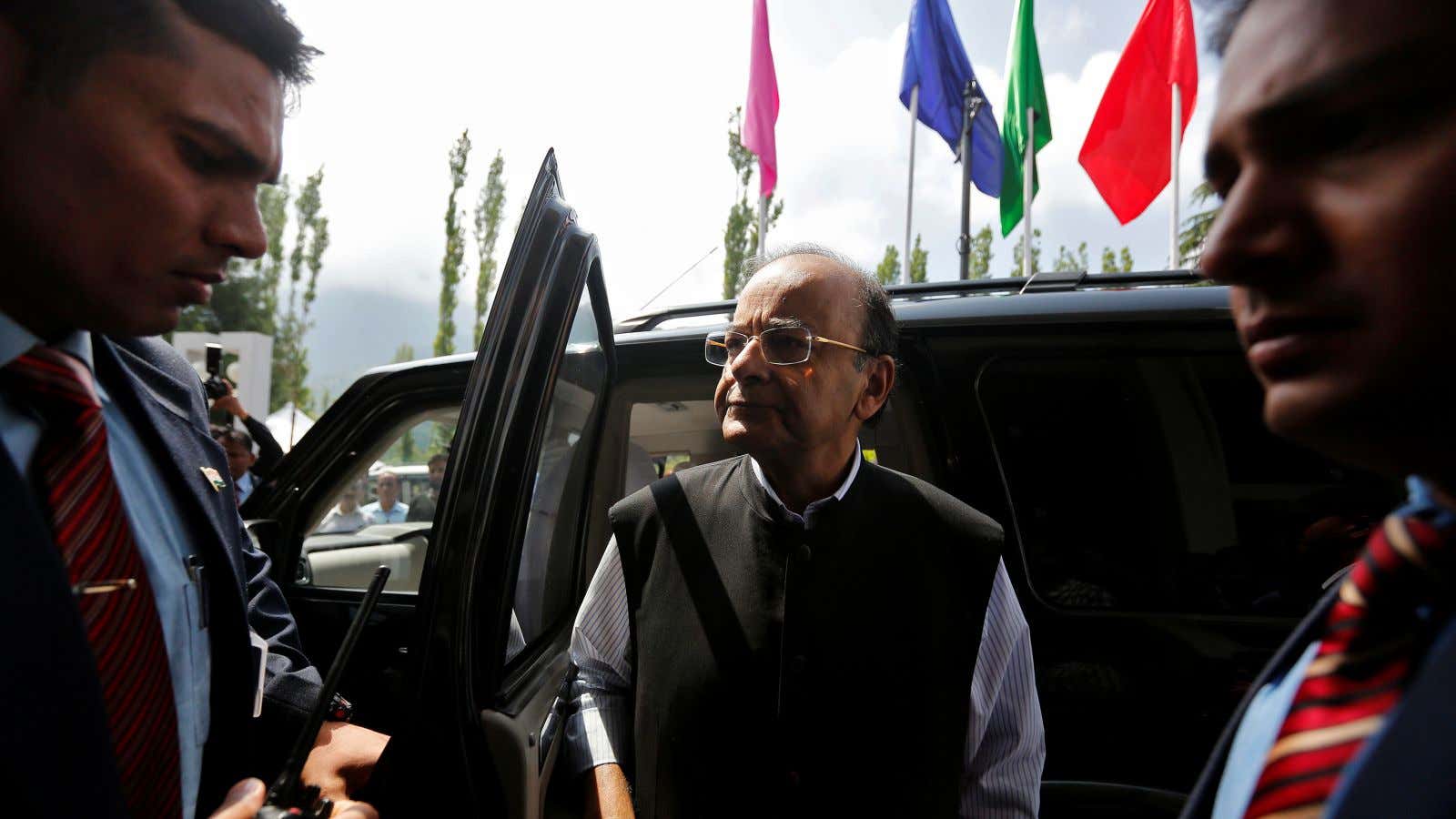While most industries have long lists of demands from finance minister Arun Jaitley leading up to the budget on Feb. 01, India’s booming fintech sector primarily has just one wish—that its presence be acknowledged.
While the Narendra Modi government and the Reserve Bank of India (RBI) have already laid down regulations for certain segments, such as peer-to-peer lending, others like cryptocurrencies and online lending startups are yet to be regulated. Such regulation may mean stricter compliance, but the management at these firms believe it will lend legitimacy to the industry, which is expected to be worth $2.4 billion by 2020. That, in turn, will help them grow faster.
“Given the growth in the number of participants in bitcoin and other cryptocurrencies and trading volumes, it is time that the government makes its stand known,” said Ajeet Khurana, head of the Blockchain and Cryptocurrency Committee, a lobby of bitcoin players. “Even if a detailed policy framework is not possible at this stage, an indication of the government’s mind will help in the robust growth of one of the fastest-growing sectors of fintech.”
The Indian government is clearly not comfortable with cryptocurrencies and has even compared them to ponzi schemes. However, it hasn’t taken any steps to ban them either.
“The government and the RBI have been repeating the same statements on bitcoin since December 2013. Therefore, it is clear that if they had to probably ban it then they would have had done it by now. So it is better that they at least give an indication about the regulations,” said Sathvik Vishwanath, co-founder and CEO of Unocoin, a bitcoin exchange.
Meanwhile, the government has constituted a committee to understand the current status of virtual currencies and regulations surrounding them in other parts of the world. It has been asked to suggest a framework to regulate them.
There is a lack of clarity on various counts, including whether the profit or loss from trading in digital currencies will be treated as business income (or loss) or a capital gain (or loss), Khurana added.
And it is not just about cryptocurrencies. Even online lending firms that work in collaboration with banks or non-banking financial companies are now demanding greater acceptance from the government.
“The policies need to be more inclusive in nature,” said Manav Jeet, CEO of Rubique, an online financial services marketplace. “For instance, we can play a great role in financial inclusion or lending to the micro and small enterprises, which are key focus areas for the government. So we should be allowed to play a more important role because we can make a significant difference.”
However, unlike in the case of cryptocurrencies, the central bank has recognised the massive potential of online technology firms. But not much has been done to support the ecosystem, rue fintech companies.
“Even though the government has taken steps to help startups, it hasn’t really translated into anything significant,” said Satyam Kumar, co-founder, LoanTap, an online fintech platform that provides retail loans to salaried individuals. “The cost of compliance for setting up a fintech startup and the legality involved is too high, which ends up derailing the process. So, the government needs to relax those rules, and that can happen only if we are acknowledged as a separate sector.”
